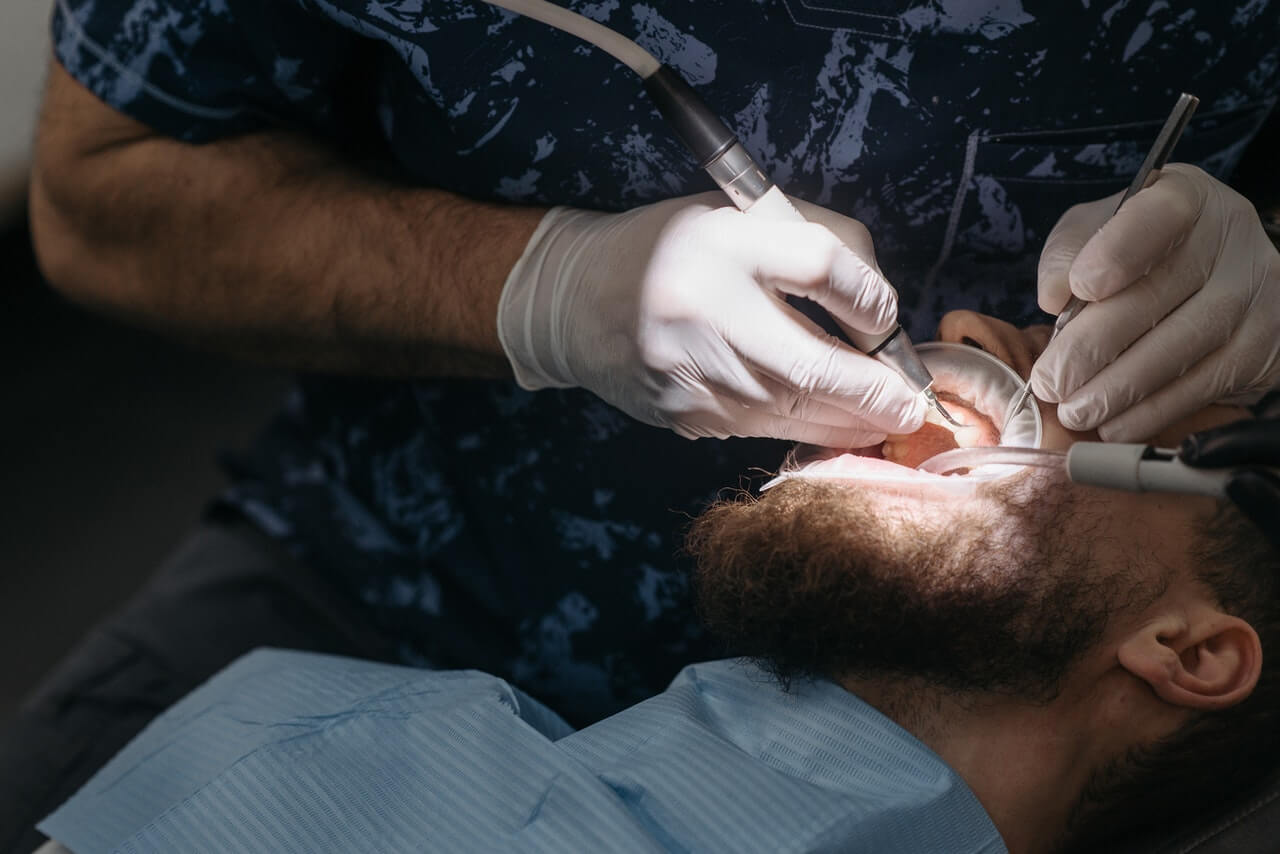Can I Sue My Dentist for Nerve Damage?
April 21, 2022 | Medical Malpractice
If you underwent a dental procedure, such as a root canal or dental implant, but afterward you have more pain than before the procedure or loss of sensation, you could have nerve damage caused by your dentist’s negligence. In most cases, dental malpractice victims can sue their dentist for nerve damages and recover a dental nerve damage settlement in Missouri or Illinois. Speak to a St. Louis medical malpractice attorney about your case to determine if you qualify for compensation on either side of the Mississippi.
The experienced team of St. Louis dental malpractice attorneys at Dixon Injury Firm can thoroughly investigate your situation and explore all of your legal options. If you are eligible to bring a dental malpractice claim or lawsuit against your dentist, we could assist by filing a claim with the dentist’s malpractice insurance carrier and work to negotiate a favorable settlement offer on your behalf.
If the insurance company refuses to fully and fairly compensate you for your nerve damage and all of the other pain and suffering that you had to endure, we could file a malpractice lawsuit and litigate the case in the Missouri state court system to a favorable conclusion on your behalf.
Can I Sue My Dentist for Nerve Damage?

Yes, you can sue your dentist. Nerve damage is sometimes unavoidable, but if your dentist fell short of the expected standard of care, you might be able to claim compensation. A medical malpractice lawyer can examine the situation and tell you whether you have a case.
Need Legal Help? Let’s talk.Common Dental Procedures That Cause Nerve Damage
Dentistry procedures are supposed to alleviate a person’s dental pain, not make it worse. However, sometimes, a dentist’s negligence can cause or aggravate a patients’ condition and result in nerve damage. Dental nerve damage can cause severe and chronic tooth pain, and in some cases, cause numbness, tingling, and total loss of sensation in a specific part of a person’s mouth, such as their chin, lips, or gums.
The most common dental procedures that cause nerve damage include:
- Root Canals
- Wisdom Teeth Removal
- Tooth Extractions
- Dental Implant Procedures
- Improper Anesthesia
It’s essential to keep in mind that if you experience pain after a dental procedure, this doesn’t automatically grant you grounds to sue your dentist. If you have worsening pain after dental treatment, it’s in your best interest to document your injuries (dental records, a second opinion from another dentist) and consult with a St. Louis dental nerve damage attorney about the likelihood of suing for nerve damage.
An attorney will be able to determine what legal options might be available to you if your pain continues. He or she could also assist you with bringing the proper legal claims, or if necessary, pursuing litigation in the Missouri state court system, seeking the monetary compensation and damages that you need and deserve.
Is a Dentist Liable for Nerve Damage?
If a dentist doesn’t diagnose periodontal disease or drills too deeply during an implant, this could cause nerve damage and other irreversible harm. But, in other cases, dental pain after a procedure might not be related to dental malpractice.
For example, if you visit the dentist for wisdom teeth removal, but during the procedure, your dentist determines it’s in your best interest to book another appointment for removal of several non-wisdom teeth, but you have nerve pain between appointments, you’d be ineligible to sue your dentist. If a dentist identifies your condition and suggests treatment at a later date, you likely aren’t liable for your damages. However, if the dentist ignored ongoing symptoms and didn’t recommend further treatment, you could be able to sue your dentist for malpractice.
As part of a dental malpractice claim or lawsuit, you—as the injured patient—have the legal burden of proof in your case. The defendant dentist (or the dentist’s insurance company) does not need to prove anything. Therefore, if you are experiencing severe mouth pain and believe that dental malpractice might have occurred, you must get an experienced St. Louis dental malpractice lawyer on board in your case as soon as possible.
Your lawyer can look into the situation and determine if you will be able to satisfy the legal burden of proof in your case. If so, your attorney can assist you with satisfying that burden and pursuing the compensation that you deserve.
Proving Liability in a Dental Malpractice Case in St. Louis
Proving a fault—or liability—in a dental malpractice case can sometimes be an uphill battle. In a medical or dental malpractice case, the burden of proof is on the injured plaintiff to prove that the dentist behaved unreasonably under the circumstances. This typically means that the dentist did something that a hypothetical reasonable dentist would not have done—or that the dentist failed to do something that a hypothetical reasonable dentist would have done.
In addition, the injured patient must be able to show, by a preponderance of the evidence (in other words, more likely than not), that he or she suffered some type of injury or damage due to the alleged incident of malpractice. Finally, the injured patient must prove that his or her injuries resulted from the malpractice.
Before filing a lawsuit against the healthcare provider, you will need to have a qualified expert on board in your case—usually an independent dentist. This health care provider will need to certify in writing, and to a reasonable degree of medical certainty, that your treating dentist did not act reasonably under the circumstances (in other words, that he or she breached the prevailing standard of care).
Once a qualified dental expert is on board in your case, you may be in a position to file a lawsuit against him or her, seeking monetary compensation and damages for your injuries, pain, and suffering.
Dental Nerve Damage Settlements in St. Louis
There are two different types of nerves in a person’s mouth: lingual and inferior alveolar. If a person suffers damage to their lingual nerves during a dental procedure, this could cause permanent damage to the lower mouth, such as feeling in the lips, tongue, and gums. Similarly, when inferior alveolar nerves are damaged, this could cause severe loss of feeling in the mouth but can also cause issues in the canines or incisors, which connect to the inferior alveolar.
If you have nerve damage from a dental procedure and have copies of dental records and proof of the dentist’s negligence, you could recover compensation by hiring an experienced lawyer to represent your case.
Typically, dental nerve damage settlements in Missouri include compensation for medical bills (treatment of injury, anti-inflammatory and pain-relieving medication, medical accessories required while healing), pain and suffering (mental, physical, and emotional distress linked to nerve damage), lost wages (any loss of income that occurred while recovering from injuries or undergoing treatment for nerve damage is eligible for recovery), and other damages.
The experienced team of St. Louis dental malpractice attorneys at Dixon Injury Firm can negotiate with the insurance company on your behalf in an attempt to obtain a favorable settlement offer for you. If the at-fault dentist’s insurance company refuses to offer you the monetary compensation and damages that you deserve for your injuries, our legal team welcomes the opportunity to litigate your case in the Missouri state court system.
Reasons to Sue a Dentist
Below are some reasons to sue a dentist that are worth pursuing legally with a medical malpractice attorney:
- Complications with Anesthesia
- Injuries to Oral Nerves (Nerve Damage)
- Negligence: Failure to Diagnose Oral Diseases or Cancers
- Complications with Bridges and Crowns
- Damages and Problems withTooth Extraction
- Infections
- Root Canal Injuries
- Complications from Novocain
- Wrongful Death
The Claims Filing and Settlement Processes in a Missouri Dental Malpractice Case
Once an experienced St. Louis dental malpractice attorney in your case determines that you are eligible to file a legal claim against your dentist, then the claims-filing process can begin. This process starts when the injured patient’s attorney submits a demand package on his or her behalf. One of the most important documents in the settlement demand package is the settlement demand letter. This letter will make a monetary demand for settlement, depending upon the limits of the underlying insurance policy.
In addition to the settlement demand letter, the demand package will include various other documents that are important to the case and its ultimate settlement value. First of all, the package will include copies of the patient’s medical treatment records and medical bills, which will reference any follow-up procedures the patient had to undergo following the instance of malpractice, as well as the cost of that treatment.
The package should also include any reports or findings that a qualified dental expert prepared in the case. Your attorney can use those documents to demonstrate that the treating dentist did something wrong under the circumstances. If the patient needs to undergo a future medical procedure, documentation to that effect should also be in the demand package.
The settlement demand package might also include the patient’s notes or journal entries describing the pain and symptoms that he or she has suffered every day. Finally, the settlement demand package may include a victim impact statement that describes the overall impact that the malpractice incident has had on the patient’s well-being and overall life.
Once your attorney has submitted the demand package and the insurance adjuster has a chance to review it, the adjuster may make an initial settlement offer to see if the patient will accept it and resolve the case. Most of the time, however, initial settlement offers that insurance company adjusters make are extremely low—and far below the actual value of the claim. Insurance companies make these low offers to see if the patient is in a hurry to settle, and if so, to try and settle the case for as little money as possible.
After all, the insurance company employs the adjusters, and they are trying to save the insurance company as much money as possible. In most dental malpractice cases, it will take several rounds of negotiations between the insurance company and the patient’s attorney before the insurance company increases the settlement offer sufficiently. If the insurance company refuses to offer you the monetary damages that you need to fully and fairly compensate you for your dental injuries, you have the option of filing a lawsuit in court.
An experienced St. Louis dental malpractice attorney at Dixon Injury Firm will work diligently to help you pursue the maximum amount of monetary compensation available to you by way of a settlement. If you can’t settle the case favorably, your attorney could file a lawsuit and litigate the case on your behalf in court.
Filing a Lawsuit and Litigating a St. Louis Dental Malpractice Case
Filing a lawsuit in a dental malpractice case formally begins the litigation process. An attorney typically files a lawsuit when the injured patient’s attorney and the dentist’s insurance company cannot agree on a settlement amount. Once a plaintiff files a lawsuit, however, the parties can continue to negotiate, and it may settle at any point along the way.
During the litigation phase of a dental malpractice case, the following will typically happen:
- The parties will exchange written documents, along with answers to interrogatories—such as written questions about the incident, the injuries and damages suffered, and the likelihood of future dental or other medical treatment.
- The parties will take each other’s deposition to learn more about the case (for example, the patient’s attorney will depose the dentist, and the dentist/insurance company’s attorney will depose the patient). The purpose of depositions is to find out what the other party recalls factually and to get an idea of how the witness will testify if the matter were to go to trial.
- The parties will attend some type of pretrial or settlement conference where the court will make one last attempt to try and bring the parties together and resolve the case.
If the dental malpractice case does not settle during the litigation stage, the parties may elect to take the case to trial. At a dental malpractice jury trial, the selected jury members will decide the outcome of all disputed case issues.
Typically, this means that jurors will decide the following issues:
- Whether the dentist committed one or more acts of dental malpractice
- Whether the patient suffered one or more injuries
- Whether the injuries occurred as a direct and proximate result of the act of dental malpractice
In addition, the court will task the jury members with determining what, if any, monetary compensation (in other words, damages) the patient is entitled to recover as a result of the dentist’s negligence under the circumstances.
As an alternative to taking a dental malpractice case to a civil jury trial, the parties might elect to pursue one or more types of alternative dispute resolution. The most common forms of alternative dispute resolution include mediation and arbitration. At a mediation proceeding, a mediator who is appointed by the parties or by the court will work to try and help the parties resolve their case by way of a settlement.
A mediator could point out the potential strengths and weaknesses of the dental malpractice case if it were to go to trial. The mediator will also help to facilitate settlement discussions and get the matter resolved as quickly and efficiently as possible.
As an alternative to mediation, the parties might elect to take the dental malpractice case to binding arbitration. Before the binding arbitration hearing, the parties will select a low amount and a high amount for the case. However, neither party will disclose these limits to the arbitrator. At the arbitration hearing, a neutral third-party arbitrator will listen to all of the evidence presented and will award damages to the patient in the case.
When you decide to litigate your case, a knowledgeable St. Louis dental malpractice attorney can explain all of your legal options. He or she will be able to help you decide whether you should accept a pending settlement offer from the dentist’s malpractice insurance company or whether you should take the case to court. Your attorney could also help you decide if mediation or arbitration might be helpful in your case and may be able to recommend one of those alternatives to you.
Statute of Limitations in Dental Malpractice Cases
If you have suffered nerve damage in your mouth that you suspect may have been caused by an act of dental malpractice, seek out an experienced St. Louis dental malpractice attorney to represent you as soon as possible. This is because the State of Missouri, like all other jurisdictions, imposes a time limit on filing medical and dental malpractice claims and lawsuits in the state court system.
In Missouri, a plaintiff must file a dental malpractice claim within two years of the date on which the alleged incident of malpractice occurred. This two-year time deadline is a hard-and-fast rule, and there are only a handful of extremely limited exceptions that might apply under certain circumstances.
This means that if you do not file your dental malpractice claim within the required deadline, you can never seek monetary compensation for your medical bills, lost wages, pain and suffering, and other damages. Consequently, the earlier that a knowledgeable St. Louis dental malpractice attorney comes on board in your case, the better for you and your case will likely be.
The experienced legal team at Dixon Injury Firm understands the unforgiving nature of statutes of limitation in our state. We can file your dental malpractice claim or lawsuit well within the statutory deadline, safeguarding your right to recover monetary compensation in the case.
Speak With a St. Louis Medical Malpractice Lawyer About Your Nerve Damage Now
If you are thinking about bringing a nerve damage settlement in St. Louis against your dentist, you need an attorney representing your case. Dentists, like medical doctors, have protocols in place to protect themselves in the event of malpractice claims. Without a Missouri medical malpractice lawyer by your side, you won’t likely recover full compensation for your claim because you won’t know the laws or how to press your case against the dentist’s insurance agents.
If you suffered dental malpractice and need a St. Louis medical malpractice lawyer, Christopher Dixon knows how to fight against the other party’s insurer for the highest settlement.
As a Top 100 Trial Lawyer recognized by the National Trial Lawyers Association, Chris Dixon is the leading choice for dental nerve damage claims in St. Louis and throughout the state of Missouri. Choosing the Dixon Injury Firm to represent you helps ensure that lawyers who care about your well-being will do everything to procure the best results for you.
For more information about the nerve damage a Missouri or Illinois dentist caused you, call (314) 208-2808 or contact the Dixon Injury Firm today for a free case review or consultation. We serve people in the city, Metro East, or St. Louis County, and beyond.


